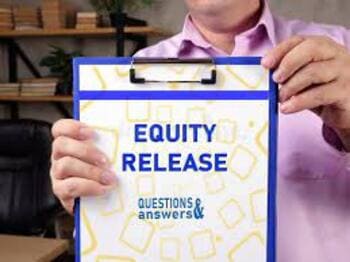Last year in the UK, substantial changes came into effect with regards to pension payouts. At the age of 55 or over, you can now use your pension pot as you see fit - without the previous limitations based on the amount you have in it. Those who have retired can now choose to withdraw a large chunk of their pension in one go, if they so wish.
But this increased freedom which allows people to take greater control of their finances could spell disaster for some. As such, the choice between an Annuity and an Income Drawdown has never been so pressing. To help answer the burning question, "How can I benefit the most from my pension?", we explore the pros and cons of your pension pot options...

Annuity v. Income Drawdown: What's the difference?
Working 8 hours a day over a long period of time can lead to a healthy pension pot come retirement. Even after you strip out the essential downtime taken up by weekends, holidays, and occasional sick days, the average worker bee will spend approximately 220 days in the office each working year. Multiply that by more decades than you care to remember, and it's easy to see where your nest egg grew from. But knowing how to make it last you can be tricky.
'People don't want to be kept awake at night worrying about their pensions,' explains Just Retirement expert Stephen Lowe. Once retired, many people want to be able to kick back and relax safe in the knowledge that they don't have to worry about financial matters. This leads to many people buying an annuity: in simple terms, this is a way to turn your pension savings into a reliable income which will be paid for the rest of your life. The amount you receive will be based on how much you, your employers and the government has invested into your 'pension pot' over the years.
In contrast, income drawdown (referred to simply as drawdown) allows those who have retired to choose and vary the income they receive from their pension pot every year. As such, it permits you to access your pension far more easily, giving you the freedom to withdraw an amount that you determine necessary depending on your changing individual circumstances. Highlighting the appeal for many pensioners, managing director of Portal Financial, Jamie Smith-Thompson, explains that with income drawdown, 'There is a flexibility in terms of the income you take year-on-year.'
But there are advantages and disadvantages to be aware of for both options. Let's take a closer look...
Pros of Annuities
- Once you have bought an annuity, you don't have to think about your pension again - it secures you an income for the rest of your life, which will be paid into your bank account directly. What's more, there is the possibility for enhanced rates of annuities through health issues, possibly increasing the payouts you receive by up to 1/3.
- As of April 2016, you can opt to invest smaller amounts into your annuity. The new law means that you can draw out 25% of your pension pot without paying a penny of tax on it - investing this in an ISA will give you additional money from accruing interest. Then, you could buy an annuity with the rest of the pension pot to provide longer term financial security.
- Some annuities offer more benefits than others - so be sure to check around for the best deal to suit your circumstances. For instance, if you die just a few years after buying your annuity, some will pay a specified amount to your loved ones over a period of time - offering them a portion of the security that was promised to you.
Cons of Annuities
- Due to plummeting rates, annuities generally don't offer the reasonable returns that they used to. For instance, if you invest £100,000 from your pension pot into an annuity, you could get as little as £3,200 annual return - too little for most to live on. So, just to break even, you'd need to live around 31 years from the time that you took out the annuity! What's more, for many pensioners this low yearly payout isn't even close to enough.
- The aforementioned lack of flexibility with this option can lead to limitations. However, recent government legislation has led to a change in how much hold an annuity has over your money in the long term, making it easier for you to have financial freedom.
- If all of your pension pot is spent on your annuity, you will have nothing to leave behind for loved ones (should this be something you wish to do). Given the pension reform in 2015, this is something to take very seriously: if you die before the age of 75 and have money left in your pension-pot, your beneficiaries can now claim this tax free. However, this is not the case if your money is tied up in an annuity - the remaining amount in the annuity is not usually distributed to your next of kin if you die.
- Bear in mind that, if you have already bought into an annuity and no longer want to continue with it, you will soon be able to sell it to a willing buyer without having to pay such steep tax. Currently the tax you will pay is between 50-70% (a huge amount!), but the government is enforcing a reduced tax in this scenario, which means you will only have to pay between 20-45% - depending on your personal situation.
Pros of Drawdown
- You have unrestricted access to the money in your pension pot, giving you the financial flexibility to pay for unexpected or unpredictable outgoings.
- None of us can predict when we will die, and for a lot of people ensuring that easily accessible money is left behind for loved ones. Whereas annuities can mean that the money you invested from your pension pot is lost when you pass away, income drawdown is different. If you die before the age of 75, any money left in your pension pot will be accessible to your loved ones - completely free of tax.
- Likewise, in the event that your death occurs after the age of 75, with drawdown your loved ones can still claim the remaining money in your pension pot - just in different ways. They can either take it as a lump sum by paying tax on the whole sum (the amount of tax payed now depends on which bracket the sum falls into, with larger sums receiving higher tax), or they can take their inheritance as a paid income; again, this would be subject to tax.
Cons of Drawdown
- Whilst income drawdown used to come with access to professional advice as standard - paid for through steep and non-optional commission charges - the government has now put an end to such commission-based advice in an effort to make the industry more transparent.
- You cannot predict how many years you will live for after retirement - and with living costs increasing, making your pension last is becoming increasingly difficult. To make matters worse, now that they can make the decision on whether to pay for optional, fee-based advice, many pensioners are opting not to pay for this professional guidance; instead, they are taking matters into their own hands. However, in doing so, they often land themselves in difficult financial situations. This is caused by making poor decisions with money drawn from their pension pot, which can jeopardize the longevity of their pension.
Need More Help?
If you're still struggling to decide how best to invest your pension pot, allow us to guide you. Fill in the short form above and let us find you the best retirement income quotes. Don't forget that you can consider combining both an annuity with an income drawdown; this way, you can enjoy a lump sum of cash, safe in the knowledge that you have an annuity for long-term financial security throughout your retirement.
See also: Is Cashing In Your Pension A Good Or Bad Investment?





